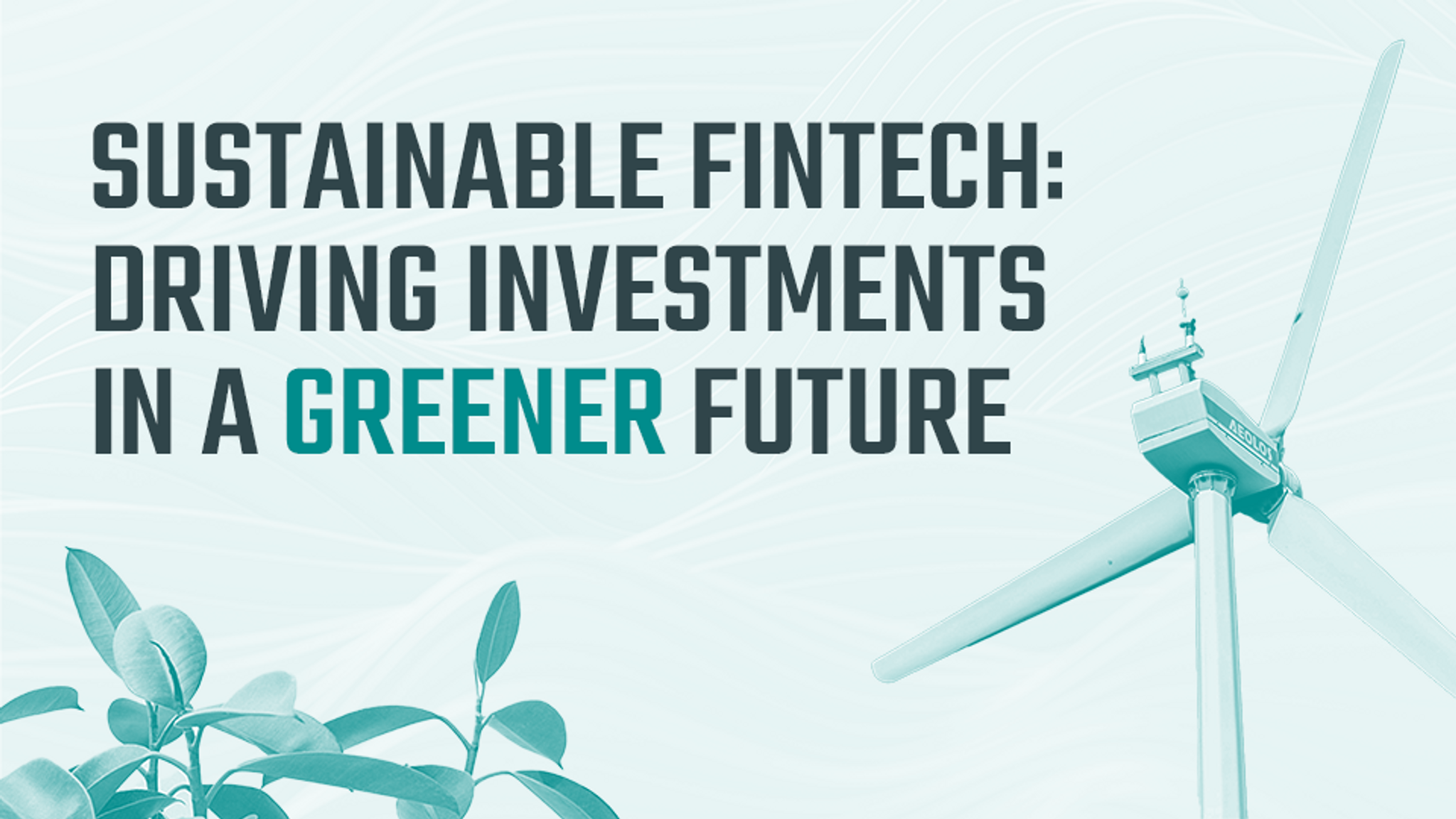Sustainable Fintech: Driving Investments in a Greener Future
Zunayed Mustafa
Published on

Sustainability has taken the spotlight in the world of fintech. Throughout the first two quarters of 2023, more and more startups are driving investments in the environment, promoting renewable energy, and enabling affordable funding.
Why is this happening?
Well, the post COVID-19 era ignited a renewed focus on green and sustainable finance, which sparked momentum for new policies, regulations, and market forces. From there, we've seen some big societal shifts in the ways consumers and governments view sustainability.
Consumers are becoming more environmentally conscious and are actively seeking out sustainable products and services to use. They're growing more aware of what's going on with our climate and the impact their products and waste has on it. This shift has created an increased market demand for eco-friendly solutions.
Governments worldwide are implementing supportive policies and initiatives to encourage sustainable practices and combat climate change. These policies are creating a conducive environment for fintech startups to focus on sustainability and align their strategies with the broader sustainability goals.
While we still have so far to go, we're already starting to make a transition, let's see how it's been happening:
Carbon Footprint Tracking: Fintech platforms are helping individuals and businesses effortlessly monitor their carbon footprints. Take Tink and Cogo, for example. They team up to offer personalised carbon footprint tracking services to banking customers.
Sustainable Investments: User-friendly platforms let you align your financial goals with your environmental values. Check out Atmos, a digital bank that funds clean energy projects with the deposits in your account.
Energy Transition Financing: These fintech companies are providing innovative financing for renewable energy projects, such as solar and wind farms. Take Trine, a Swedish fintech that lets you invest in solar energy initiatives through crowdfunding.
Green Insurance Solutions: Insurtech companies are stepping up to cover climate-related risks and support sustainable practices. Kita, a new player, offers carbon insurance products that cover various risks in carbon markets. It's insurance with an eco-friendly twist!
Circular Economy Initiatives: Fintech startups are championing the circular economy, promoting resource sharing and sustainable supply chains. Twig, for instance, lets you exchange unwanted items for cash or sustainable currency to support new purchases.
The integration of sustainability into the fintech industry has gained significant momentum in 2023 and it’s exciting to see how it will continue to expand in the years to come!
If you want to get involved with the future of fintech, consider investing in our Sustainable Fintech Fund. Learn more about it here.
